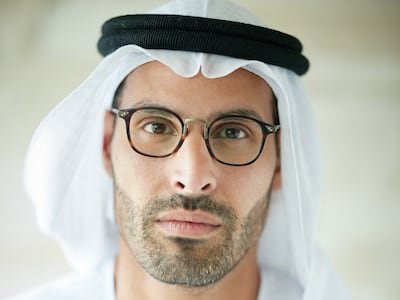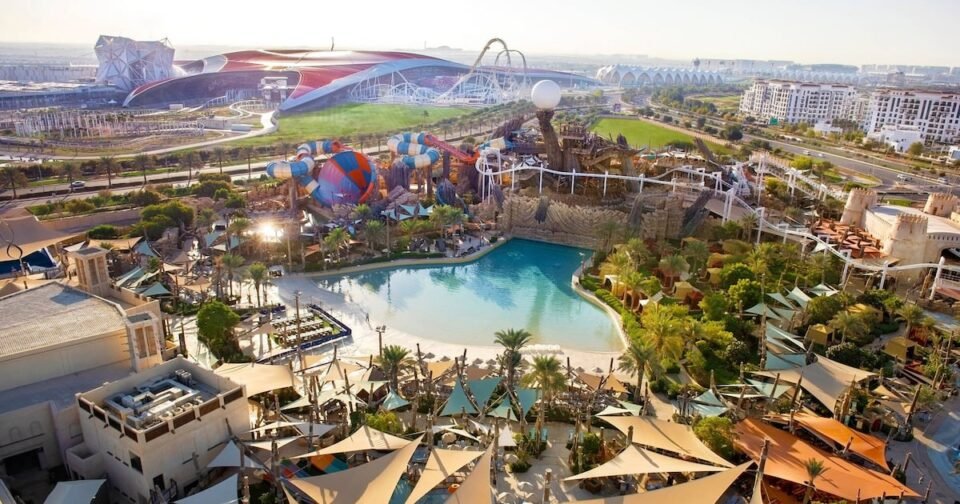Abu Dhabi is planning to invest more than $10 billion in infrastructure as part of its new major tourism strategy, the chairman of the emirate’s Department of Culture and Tourism has said.
The emirate also aims to boost the number of hotel rooms to 52,000, from the current 34,000, to boost Abu Dhabi Tourism Strategy 2030, Mohamed Al Mubarak told The National.
The UAE capital recently launched the Abu Dhabi Tourism Strategy 2030, announced by Sheikh Khaled bin Mohamed, Crown Prince of Abu Dhabi, which aims to boost the sector’s contribution to gross domestic product.
It comprises 26 initiatives across four areas – offering and city activation, which is geared towards enhancing visitor experience; promotion and marketing; infrastructure and mobility; and visa, licensing and regulation.
DCT Abu Dhabi’s major partners include the Abu Dhabi Department of Economic Development, the Department of Municipalities and Transport and Abu Dhabi Airports Company, as well as other government and private entities.
The plan aims to add Dh90 billion ($24.5 billion) to the country’s GDP annually by 2030, about 84 per cent higher from Dh49 billion in 2023, and attract 39.3 million annual visitors to Abu Dhabi, a 7 per cent year-on-year growth and from an estimated 24 million last year, the department said.
The strategy also calls for the creation of 178,000 new jobs in the emirate, bringing the total number of jobs in the tourism and hospitality sectors to about 366,000 by the start of the next decade, it said.
“Between events and marketing spend, we’re going to be hovering over $1 billion. That’s outside, of course, of the infrastructure,” Mr Al Mubarak said on Tuesday.
“[When it comes to] infrastructure, in terms of museums, theme parks and hospitality, [with] the private sector playing a significant role, we are hovering at over $10 billion of investment from now to 2030,” he said.
Among the attractions coming to Abu Dhabi are the Guggenheim Museum, the expansion of Warner Bros World and the development of Harry Potter World within it, the Saadiyat Cultural District, Hudayriyat Island for sports and adventure, and the enhancement of Yas Waterworld, Mr Al Mubarak said.
In addition, the development of a zoo and other tourism venues is ongoing in Al Ain, as well as new hotel chains, including Nammos and Mondrian, among others.
More “new interesting projects” will be revealed “in the near future, which will enhance our entertainment product on Saadiyat Island”, he added.
In addition, the emirate is also aiming to add more four and five-star beach destination hotels, as well as promote more holiday homes, particularly expanding Airbnb offerings, the chairman said.
These are aimed at targeting an international overnight visitor count of 7.2 million by 2030, about 90 per cent higher than the estimated 3.8 million in 2023, DCT Abu Dhabi said.
“These will basically bring world-class hospitality experiences to the emirate, many of them for the first time in the region,” Mr Al Mubarak said.
DCT Abu Dhabi will also expand its tourism source markets to 26, from the current 11, with more roadshows being planned across Asia, Europe, Africa and North America, he said.
Abu Dhabi is expanding efforts to diversify its non-oil economy and attract investment across sectors including aviation, technology, and tourism and hospitality.

Abu Dhabi’s economy grew 3.1 per cent annually to Dh1.14 trillion in 2023, hitting its highest level in a decade, according to Statistics Centre Abu Dhabi data reported on Monday.
“With the growth of tourism GDP … this creates a significant amount of opportunities we’re looking to bring in from now until 2030,” Mr Al Mubarak said.
Government initiatives have also played a role in supporting the tourism sector, such as the unified GCC tourist visa approved in November last year.
The system, which is expected to come into effect between 2024 to 2025 across the six-nation bloc, is expected to streamline travel logistics and underpins the “continuous communication and co-ordination”.
In addition, the UAE government is contemplating a proposal to introduce new commercial licence regulations, including a 10-year golden licence and a five-year silver licence, to boost business activities in the Emirates.
The GCC “is really going to enhance and market itself in ways it has never done. So there’s massive opportunities there”, Mr Al Mubarak said.
“This is creating massive new jobs in this industry. We’re looking to focus on cultural jobs, to focus on the creative industries. So those in itself are major opportunities for businesses to come set up here.”
Saudi Arabia, the Arab world’s biggest economy, is also embarking on a major tourism push – and DCT Abu Dhabi is viewing this as “heavily complementary” to the UAE and wider GCC’s ambitions to promote the region as a global tourist hub.
“This is something that is upon us. So we will take full of advantage of this complementary partnership,” Mr Al Mubarak said, noting the tourism boost GCC states enjoyed as a result of the ripple effects of the 2022 Fifa World Cup in Qatar.
The Israel-Gaza war, meanwhile, has affected tourists coming from Palestine and Israel, but overall Abu Dhabi’s tourism sector has been “holding strong”, Mr Al Mubarak said.
“We have continuously showcased and we have proven not only to be a safe destination when conflict is around us, but to be a safe destination regardless of any time of the year.”
In addition, DCT Abu Dhabi is planning to launch a “super app” that will link all tourism services platforms, Mr Al Mubarak said.
The mobile application, which has been in development for more than a year, is expected to be rolled out before the end of 2024, he said.
New Louvre Abu Dhabi exhibition highlights similarities in fables from Oriental and western worlds

Updated: April 03, 2024, 10:55 AM

